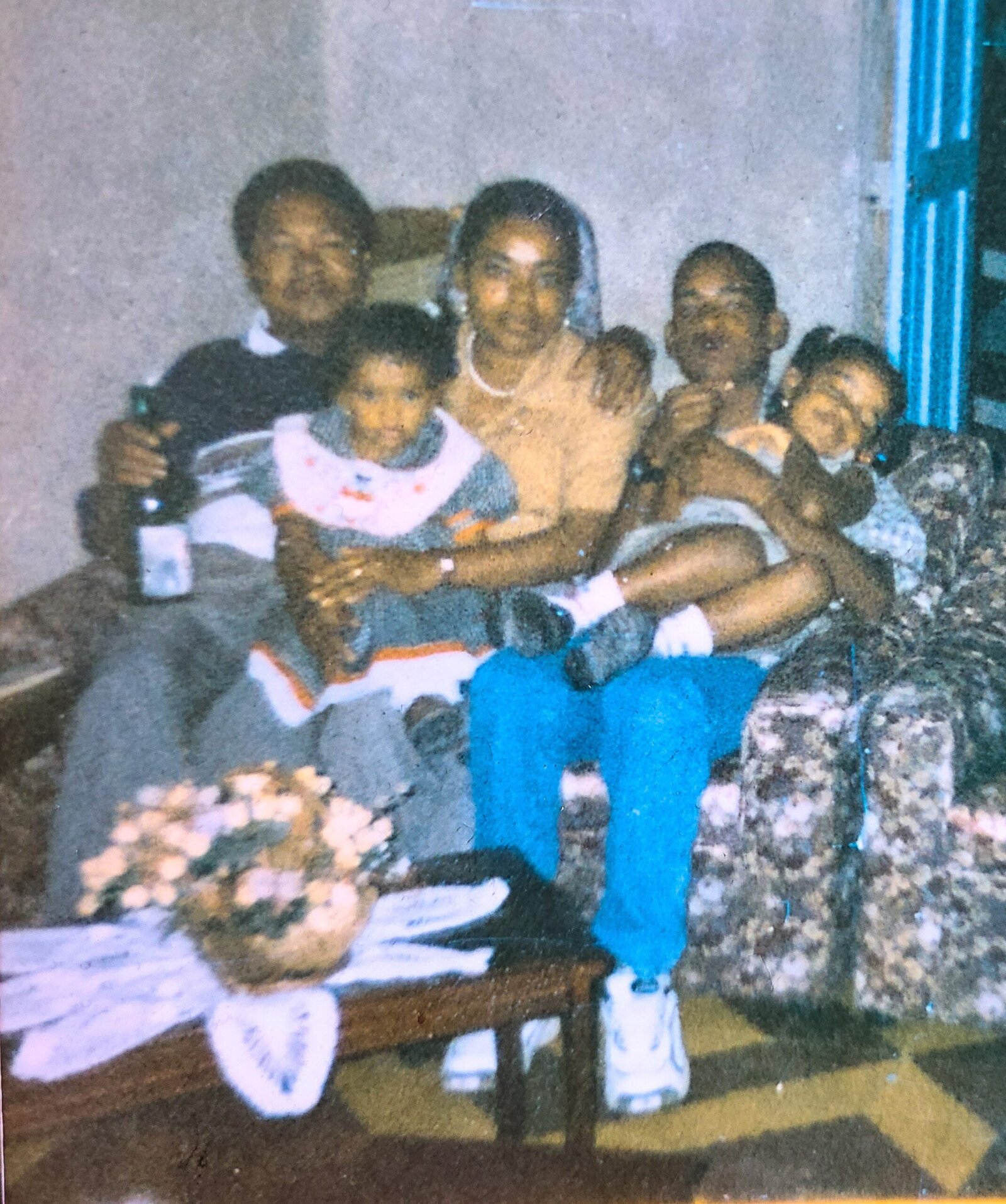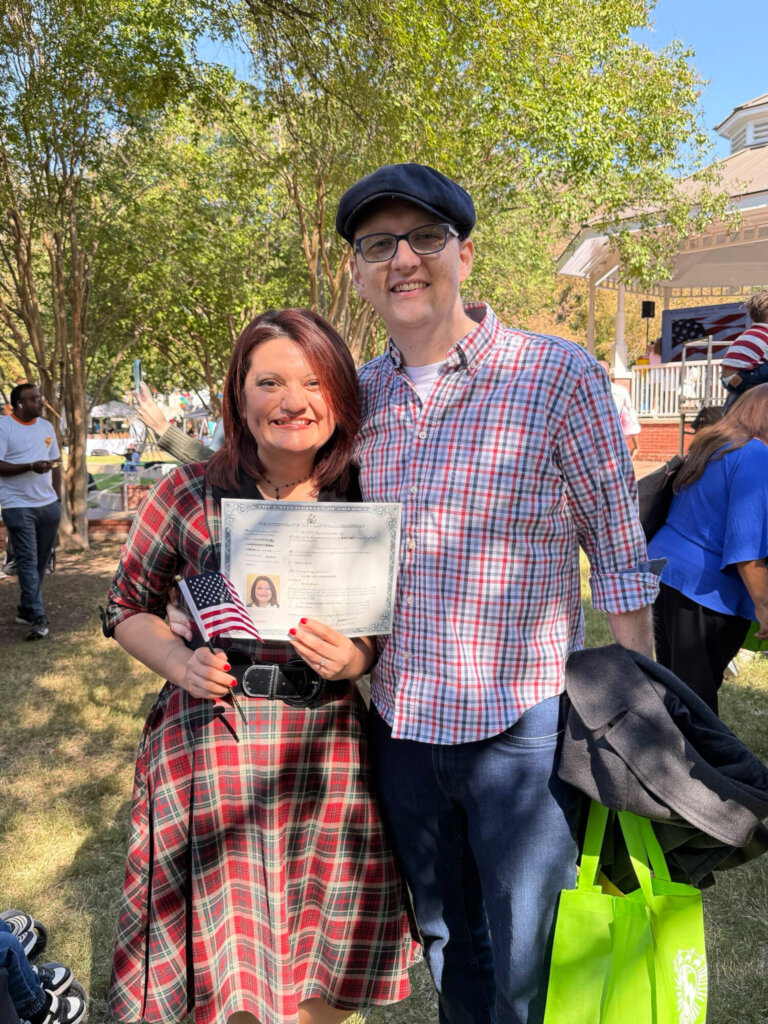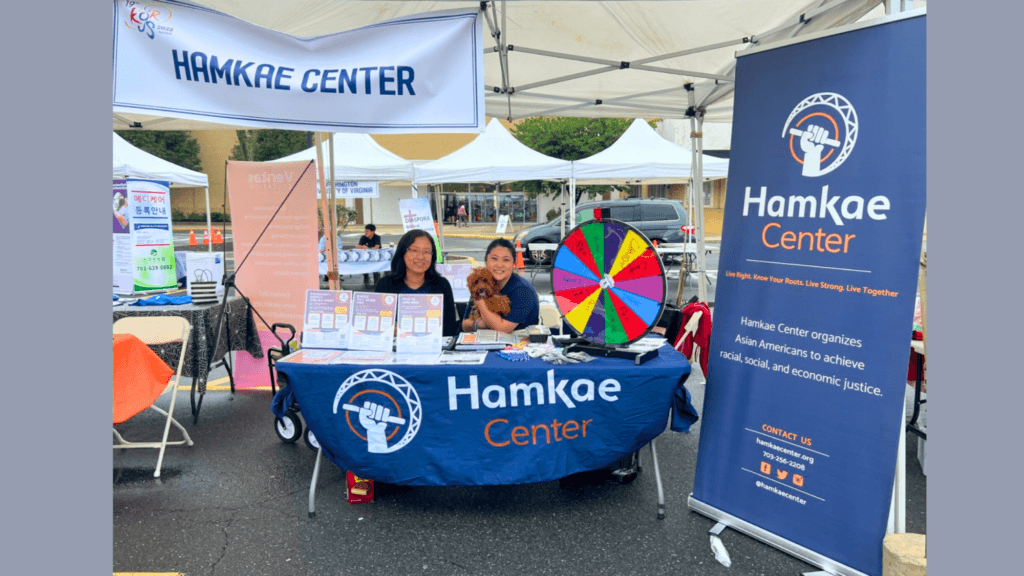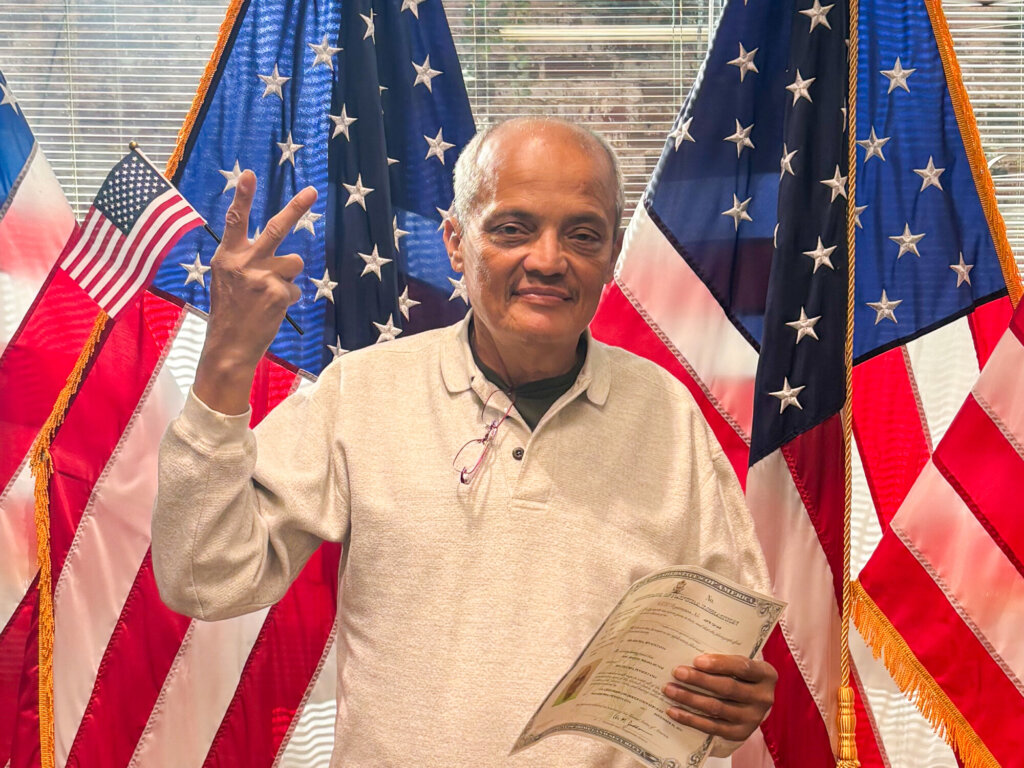Ilse Bellido Richards: “Yes! I belong here! I am a part of my community. My voice matters.”

Explore more
My name is Ilse Bellido Richards. I came to the United States from Colombia about 11 years ago when I was 14 years old. My father came first. We had a fairly good life in Colombia. He worked at the hospital doing research on tropical diseases. He would go to rural areas to investigate and work with the indigenous communities, providing services, bringing them vaccines and medicine. But because of the guerrilla warfare, there was a lot of violence. He and his team encountered guerrilla and paramilitary groups, and they wanted services too. But he wasn’t allowed to provide services for them, and they began to threaten him, “We know where you live. We know your family.” First, they killed my grandfather, then one of his co-workers. Finally, they asked him to leave the country if he wasn’t going to serve them, so he had to go.
My father came to the United States and asked for political asylum. It was a long process that took almost my whole childhood and part of my teen years. He left Colombia when I was three and I saw him again when I was 14. When he finally got his residency, he was able to request for my mother, my sister, my brother, and me. That’s how we came to Lowell, Massachusetts. It was hard as a teenager to adjust to a new culture and language. I didn’t have any friends. I didn’t know much English at all, only the basic things that they teach you in high school in Colombia, like greetings, the colors and numbers. I couldn’t have a conversation. I was in my last year of high school there, so my friends were graduating, and I wasn’t with them. I came from a village; my school was only two floors with roughly 300 students. Here the high school was huge, around 3,000 students. You had to move around and look for your classroom, I was always lost, and it was not fun.
The positive side was that we were with my father. We were finally together, and we were safe and eventually it got better. My father did a lot of different things. He worked for a Latin American health institute and went back to school for electronics training. He worked as a school substitute teacher and, for the past seven years, he’s been driving a school van. But he couldn’t become a medical researcher again. There were too many barriers. My mother was a primary school teacher in Colombia; she was actually my first-grade teacher! Here, she worked in a factory, packing apples.
My father knew that after you live here for five years, you are eligible to apply for citizenship. But I didn’t know anything about the application process. I was an undergraduate student from a low-income family. I was worried about how much it costs to apply. What would happen if I failed the exam? I kept postponing. The community college I attended had someone that did a lot of civic engagement and they encouraged me to go to the library where they have information and civic exam preparation classes. The library connected me with the MIRA Coalition. MIRA stands for Massachusetts Immigrant and Refugee Advocacy. They changed my life. They told me all the documents I needed. They walked me through the process. They sat down with me to fill out the application. And most importantly, they helped me apply for a partial fee waiver so that I could actually afford to become a U.S. citizen.
Studying for the test was not so challenging for me because I went to high school here for a year and a half. I also went through the application process with my sister, so we studied together. Even though I knew everything, I was very nervous when it came time to take the test. I smile a lot when I’m nervous. The officer asked me why I was smiling so much! He was serious, but nice, and he said, “Don’t be nervous, you are doing a good job.”
I felt that becoming a U.S. citizen was a big accomplishment after all my family had to go through to be here. This country gave us a second opportunity and we are all doing well. But my oath ceremony was a little sad because it was during the pandemic and my family couldn’t be there. There were only eight of us in attendance. We had to wear masks and the chairs were socially distant. Everyone was grateful and happy that we did it. But I would have liked the big ceremony where everyone is there with their families. I would have liked to share that moment with my family and to invite my boyfriend who is a U.S. citizen. He doesn’t know what it is to go through the process. After all these years it gives you a sense of security. I had my residency, but now I know I have a right to stay and live my life here.
(Photo courtesy of Ilse Bellido Richards)
My dad recently became a citizen and for him it was huge. He went through the whole struggle of coming here alone and doing jobs he’s never done before. My mom tried, but she didn’t pass her citizenship test because of the language barrier. The English is hard for her because she’s older, and we were at fault because we didn’t practice a lot with her. She gets frustrated and we just want to make her more comfortable, so we speak in Spanish. But she is definitely trying; she has been taking classes and practicing.
The best part of becoming a U.S. citizen for me was being able to vote. I became a citizen a week before the registration closed for the presidential election. I ran and registered and I was able to vote! This made me feel like, “Yes! I belong here! I am a part of my community. My voice matters.” It was the greatest benefit of becoming a U.S. citizen.
The MIRA Coalition has a new initiative. They reached out to people who recently used their services and asked for volunteers to be citizenship ambassadors. I just graduated from Boston College with my master’s degree in international higher education, and I’m starting a new job at Berklee College of Music as the Local and International Student Enrollment Officer. I don’t have a lot of spare time, but I thought MIRA Coalition helped me, and I have all this knowledge now that I can share with other people. The trainings were amazing. I learned the basics that you need to know to tell someone if they are eligible for citizenship. I get to know other people and I get to give back to my community. I tell people that it’s ok to ask for help. There are so many resources and so many places that are willing to help you. Even if you don’t have the most perfect English, you can communicate what you need, and they can find someone who can speak your language. You just have to take that extra step and ask for help. The resources are there.



